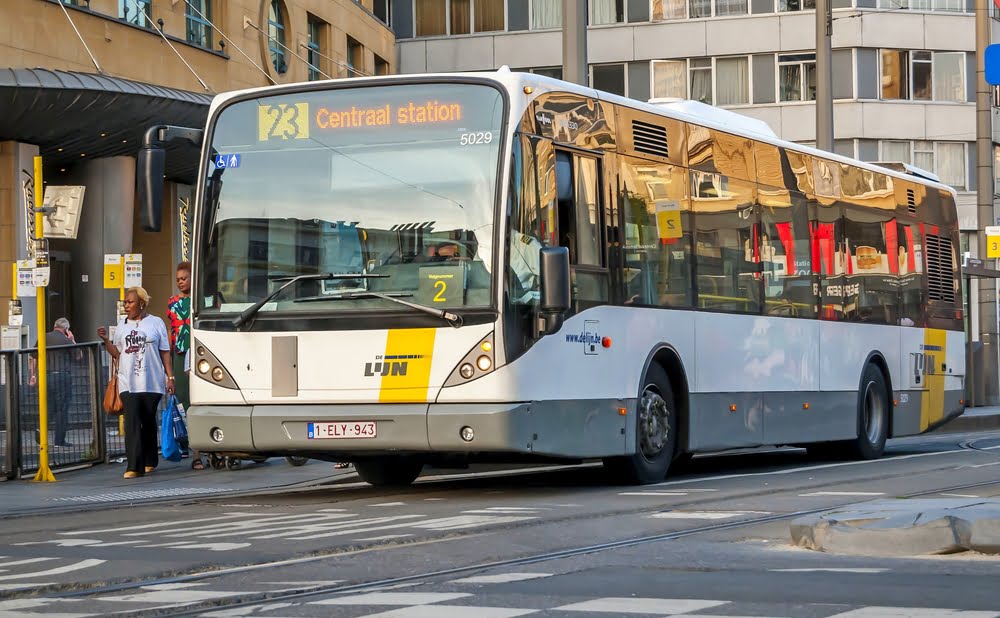Just before the Easter recess, the Flemish Government awarded the mobility center as part of the tendering procedure. Minister Lydia Peeters hoped during the latter committee meeting In any case, that more clarity would be provided as soon as possible after the Easter holidays and it was not yet possible to comment on any choices. Last Friday the choice was made and despite the 'standstill period'the name of a foreign company is already circulating in the corridors that can get started with the almost impossible task of delivering within seven months.
Despite criticism and demand for postponement from the Association of Flemish Cities and Municipalities (VVSG), Peeters wants to maintain the entry into force of the Basic Accessibility Decree and the rollout of the new public transport plans on 1 January 2022. In implementation of the Basic Accessibility Decree from 2019 From 1 January 2022, the current dial-a-bus exchanges in the various provinces will be replaced by the new Mobility Center. This Mobility Center will perform the operational management function within tailor-made transport, and will also be responsible for planning, booking and paying for journeys. The award was foreseen for March 2021.
questions abound
There are still some hurdles to overcome in the coming quarters for the Minister, who is currently inundated with the necessary questions. What is the state of affairs with regard to tariffs for customized transport and tariff integration? Despite worrying signals, does it assume that there will be no blank spots in Flanders, or is it still going to review public transport plans by its services? How will it approach this and, not unimportantly, when will travelers be thoroughly informed?
People who depend on adapted transport are assisted by the Adapted Transport Service and Mobility Centers. These will be integrated in the new mobility center. The minister indicated that he was thinking of a plan B for them. This means that the body that will soon organize the mobility center has a very strict timing and will have to deliver a detailed plan by mid-May 2021. All providers are aware of this timing and have to adhere strictly to it.
Fines
A plan is linked to the operationalization of this mobility center. It is a step-by-step plan with milestones that every provider must achieve. Failure to do so can lead to fines. The providers knew that. Anyone who submitted a tender was expected to respect this. A team at the Mobility and Public Works Department will closely monitor everything. The final test phases to see whether the mobility center is fully operational are planned for October / November 2021, so that everything will be operational and fully tested by the end of this year.
With regard to rates, some transport region councils have made a number of tariff proposals for tailor-made transport. They have even explicitly included this in their transport plans, including a number of proposals for tariff integration with De Lijn. According to the Minister, the transport regional councils have considered all possible tailor-made transport solutions within the budgets made available for all the blank spots that have arisen, and they have taken decisions in this regard. So that is complete for every transport region.
informing and communication
Then the second pillar, raising awareness: according to Lydia Peeters, this is all about informing citizens, and that starts whenever there are concrete, important achievements linked to important milestones of the process. Her ministry sees the opening of specific Hoppin points, for example, as a moment when they certainly need to communicate in a targeted manner, but also milestones around the mobility center - also very important -, also the awarding of specific specifications, and the like. Here people are going to plan very specific and multiple communication campaigns.
Then finally there is guidance. The moment the mobility center can be launched, and certainly when it should be able to be used by everyone in January, it will certainly have to be preceded by a large public campaign. Peeters is thinking about TV, radio and the like, so that everyone is very clearly aware that from January 2022 people will deal with public transport in a completely different way. From then on, the whole story of basic accessibility takes effect.
tailor-made transport
Then tailor-made transport, or specifically the Adapted Transport Service (DAV) and the Adapted Transport Mobility Center (MAV), which has also been discussed several times. They will also be included in the framework of the mobility center. Peeters has also had discussions with these authorities, and there too it is further mapped out what still needs to be done, and what still needs to be done. The steering group of the MAVs met on this last Friday.
Finally, Lydia Peeters refers to the impact on basic accessibility if customized transport is not fully operational when the decree enters into force. Everything is done to meet that deadline, but as Peeters himself points out, that is a tricky exercise.
"Starting to panic now and saying that it will be difficult to achieve, would rather be a signal that everyone can rest on their laurels. Obviously we do not want that. We want to meet that deadline. There will be teething problems at the start. I am very much aware of it. "
Minister Lydia Peeters
And it is also absolutely important that no one is left out and that there is a solution for everyone. So there will still have to be a lot of switching in that respect. For that it is now all hands on deck, all working full speed ahead, and hope that that deadline can be met. It will certainly not be the last time that it will be discussed in committee. In any case, Peeters hopes to be able to provide more clarity about the mobility center after the Easter recess.
Also read: Lydia Peeters wants more accessible stops in Flanders



